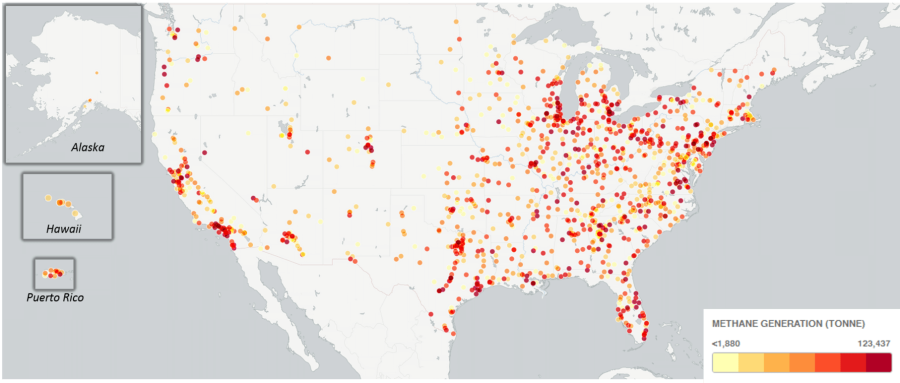
Chambers Development
It is a company created in the 1960s by Mr. John Rangos which remains the main shareholder until the merger. The company began by recycling ash from coke combustion, then with steel waste by transforming it into products to build roads; then became interested in the residues of power plants.
In the 1970s, the company bought landfills which it gradually brought up to standard, which allowed it to enter into waste treatment. It was listed on the stock exchange in 1985; it had a turnover of $260m in 1990. It merged with USA Waste in 1994.
No. 2 Allied-BFI
In the spring of 1999, the same scenario repeated itself. The small Allied Waste Industries ($ 1.6bn) from Arizona takes control of the world number 2 BFI ($ 4bn, Texas), much older and larger.
The gap between the two protagonists is all the more apparent when we examine the courses. In 1990, Allied was not even mentioned in the list of companies in the sector; at that time BFI was already doing $3bn in business. In 1995, Allied was approaching $600 million in sales.
It was by forced march, through mergers often paid for in exchange for shares, that it rose to this level. Its strength despite the speed of growth has been to target its acquisitions in order to obtain a high integration rate. This indicator corresponds to the share of waste collected by a firm and treated in equipment it controls; it gives an idea of its independence and its control of the value chain.
In the 1970s, the most far-sighted actors had understood that waste and junk treatment was going to become strategic and that firms which would only be present in waste collection would be exposed to a ruinous increase in landfill costs while their revenue from collection fixed by old contracts would not follow, which would weaken them financially. This is what happened and explains the very rapid movement of consolidation.
For this merger Allied receives the support of two of its institutional shareholders: Blackstone Group and Apollo Management. The operation was completed in July 1999 and broke down into an acquisition for $7.7bn and a debt assumption for around $1.9bn.
The merger gives rise to a set of $ 6bn of activities. It was immediately followed by an asset disposal program for $1.7bn. Some imposed by the Department of Justice; this is how $230m of assets will be sold to Republic Services after approval by the Department, which ensures that these exchanges do not lead to distortion of competition in certain counties.
Other voluntary disposals aim to reduce the debt. This is how the group sold its 20% stake in Sita; it will be taken over by Suez; a year earlier BFI had sold its international activities to the French group and this entry into the capital was part of the transaction.
Conversely, Allied found itself in the position of buyer of assets for $85m, sold this time by Waste Management as part of its acquisition of Eastern Environmental Services in April 1999.
Despite everything, the new group remains very indebted: more than $9bn in the year 2000. It must ensure a debt repayment of $1.2bn for this financial year. The accounts at the end of March 1999, like those for 1998, show net losses of approximately $250m.
Browning Ferris Industries
Already number 2 in the sector before this merger (transportation and removal), is a very decentralized Houston company which experienced various problems of compliance with regulations in the late 1980s.
The arrival in 1988 of the former director of EPA, Mr Ruckelshaus, marked a turning point. In 1989, the group made significant provisions leading to an accounting loss. The following year he sold his toxic waste treatment subsidiary with a provision of $300m. He must admit insider trading by two directors of a subsidiary (9/91). All of this, combined with lower-than-expected results for 1992, reduced confidence.
After a complete overhaul, the group resumed an external growth policy. In 1993, he acquired a hundred companies including Myrtle Beach dumpster rentals and Sandy Springs Dumpster Guys, reinforcing his integration policy. This control of landfills is strategic in two ways because it makes it possible to control the entire waste cycle and therefore the formation of costs and above all this control makes it possible to asphyxiate small collection companies which do not have their landfill and which can be taken over at better price.
Abroad BFI made two significant acquisitions in 1994 with 50% of Otto, a German company with turnover of 2.4 billion francs, and the acquisition of the English company Attwoods, sold by Laidlaw. Once the margins have been restored, the director directs BFI towards the new recycling market (paper). The figure for this division increased from $9.6m in 1990 to $370m in 1994.






